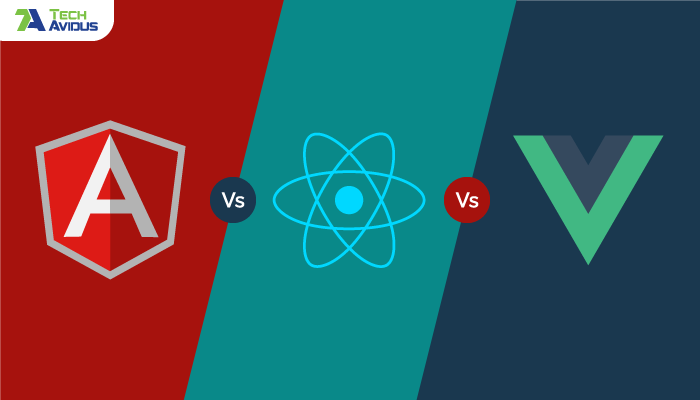
Front-end development has witnessed an explosion of JavaScript frameworks and libraries, among which angular vs react vs vue stand out as leaders. Deciding which one to use can be daunting, as each has its own merits and caters to different development needs.
Frameworks are tools that software developers use to build applications. Frameworks reduce complexity and development time. Rather than making the applications from scratch, applications can be designed quickly and efficiently with the help of front-end frameworks.
In recent times, there has been a significant surge in front-end frameworks, with Angular, React, and Vue emerging as some of the most popular choices. To comprehend their strengths and differences, let's delve into an angular vs react vs vue comparison. These frameworks have distinct features and approaches, shaping how developers create compelling user interfaces and interactive web applications.
Angular is a popular JavaScript framework founded by Google in 2009. It is one of the most popular and valuable Java frameworks worldwide. AngularJS is primarily used to build interactive web applications. Angular leverages HTML as the template language, which makes it easy to command. Angular allows easy modification of different elements of the webpage.
A JavaScript library that Facebook has backed since 2013. React is primarily used for building single-page applications of considerable size and scalability. React is mainly used for developing mobile and web-based interfaces. It is based on the MVC (Model View Controller’s) aspect.
Vue.js is the youngest among the three front-end frameworks. It was developed in 2014 by a Google employee. It fits for building great single-page applications and adaptable user interfaces.
There is no clear-cut winner as each of the three frameworks is good in its own respective. We can best compare them based on certain factors. Let’s have a look at those.
In the battle of react vs angular vs vue, React seems to be the most popular. React is exceptionally famous in the US market and React developers land on to high-end paying jobs. However, the market trends and popularity may vary according to different regions.
Different people are comfortable with varying choices of syntax. Some love to work with JSX. Others prefer typescript with Angler’s opinionated structure. Some others may choose Vue v/s Angular since Vue goes with JavaScript, which is very simple to learn. Developers should explore frameworks and libraries to discover what suits them the most.
All of the three frameworks are good when measured by their performance. One point to note here is that Angular apps are more extensive than React or Vue, but that’s not a problem while working with small applications.
Vue is the simplest as it demands basic knowledge of HTML and JavaScript. The difference between Angular and React is that you will have to learn typescript and JSX, respectively, which will take a bit more time and effort.
The emergence of react vs angular vs vue has sparked a renaissance in front-end development for both mobile and web applications. These frameworks have significantly reduced development complexity and effort, prompting ongoing debates about angular vs react vs vue. Regardless of your choice among these frameworks, each offers the potential to accelerate your development process, providing relief from intricate coding procedures.
Our Top 1% Tech Talent integrates cutting-edge AI technologies to craft intelligent, scalable, and future-ready solutions.
All Rights Reserved. Copyright © 2025 | TechAvidus